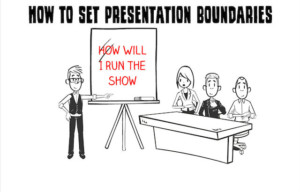You become a better public speaker the same way you become better at anything else.
Deliberate and continuous practice. Jeff Olson in his book The Slight Edge talks about how the overnight success phenomena is a myth. It does not exist; what seems to be an overnight success was years in the making. Jeff Olson talks about how taking small smart steps towards your goal on a regular basis is the key to becoming better at anything. The small steps end up compounding to a significant result.
The same principle applies to public speaking. If you try the magic bullet approach and try to get good overnight, you will be let down. A better approach is to break public speaking skills into smaller subsets of skills and work on each subset as an independent muscle group. Over time you will see massive improvements.
That’s the approach I took to go from an introverted engineer to a National speaker in less than two years. I don’t want to discourage you; I was working in the dark and creating my system for improvement. You don’t have to start from scratch; this article will get you started in the right direction to achieve your public speaking goals.
How to be a good public speaker?
First, what does it mean to be a good public speaker?
It’s important to define what is “good” so that you know what to aim for. I don’t like to set the bar so high that no one can achieve it, but I don’t like to set it so low that you are not motivated to work hard.
The Criteria for being a good speaker:
- You have to be a human being on stage
- You have to be able to articulate complete thoughts
- You have to be physically expressive in addition to vocally expressive
First Criteria: You have to be a human being on stage
To be good, you have to be able to remain a human being in front of an audience. I see so many speakers who the moment they get onstage turn into robots. I did this initially, I would be talking with you and relaxed in a one to one setting, and the moment I was in front of the group, I would become somebody else. I remember one day I saw a video of one of my early talks and I was flabbergasted! I could not even recognize myself. That’s the first criteria of being good. It’s not easy to do. I took a lot of improv classes and acting classes to help me shed my robotics, and learn how to be authentic and real when the attention is on me.
Second Criteria: You have to be able to articulate complete thoughts
You have to be able to articulate complete thoughts in front of a group. Have you ever seen a professional with impressive credentials ramble on and on with no point? Maybe it’s you? Don’t feel bad. Almost everyone does it initially when they speak without any training. If you are like most professionals, then you probably had one public speaking class in college, and that was it.
Complete thoughts mean you communicate a message, support the message with evidence, and then add an emotional element to it like a story or an anecdote. To improve your thought clarity and completion, you need to speak your mind out loud on a regular basis and get feedback. One of the best places for this is Toastmasters or regular mini public speaking classes that you can attend in your area.
Third Criteria: You have to be physically expressive in addition to vocally expressive
Your audience likes to see you move and express yourself physically on stage. It helps them concentrate, and it helps them stay engaged with your message. If you have limited or no physical expression when you are in front of an audience, then you are not speaking to your full potential. The only context where this is acceptable culturally is when you see spiritual guru’s talk. If you are not a spiritual guru, then you need to start authentically leveraging your physical expression.
How to be a better public speaker
Ok now that we know what the criteria are for being a good public speaker, how do we improve and become better?
The fastest way to improve is to engage in a deliberate action to improve. Just like going to the gym at the beginning of the year once will not help you develop your muscles and stamina, doing one public speaking class a year will not help you improve much. You have to practice on a continuous basis deliberately.
When people see me speaking nationally as a keynote speaker and as the CEO of a public speaking training company, they don’t see the years I put in of compounding and deliberate practice.
I belonged to a ToastMasters club for five years, and every week I spoke there and treated it like my public speaking gym. Every week I worked out my public speaking muscles and focused on different areas of growth. Even to this day, I still work out my speaking skills on a weekly basis, and I will probably continue to do so for the rest of my life. Very few people are born with a genetic advantage that makes them good speakers, the rest of us have to work at it.
My recommendation to you is to take a public speaking class once a week for a year. Before you freak out, that’s only 52 weeks. I promise you that if you dedicate 1 hour per week for 52 weeks for deliberate practice around public speaking, you will be a different person at the end of these 52 weeks. Most importantly, you will be hooked on public speaking because you will start to like it and you will start to see the positive results it will have on your career. Of course, we offer classes that you can take, and we would love to see you there (your first class is free)
Conclusion
There is no secret to becoming a good public speaker. The first step is you have to know what it means to “be a good speaker.” My criteria for being good is, you have to be human on stage, you have to be able to articulate full thoughts in front of an audience, you have to be physically engaged on stage. Once you know the criteria for being a good speaker, then you work on becoming a better speaker through deliberate and continuous practice.

